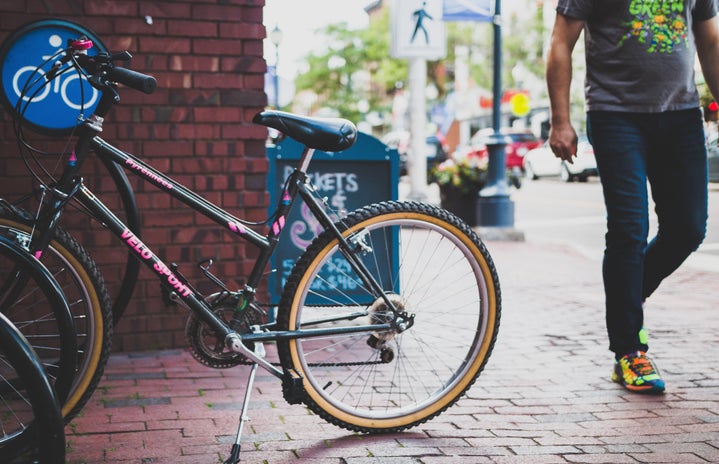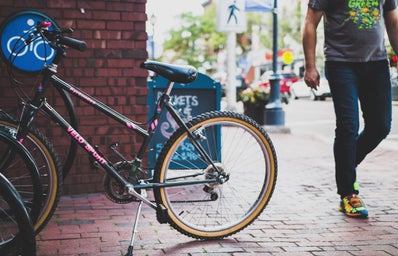By January of 2018 I made the gut-wrenching decision to leave my beloved jobs and focus on solely myself and school. At my absolute sickest, I would sleep fifteen hours straight, then haul myself up to do a mediocre job on homework and head to class before passing out again. The amount of times I fell asleep in my car (parked of course!) has to be in the dozens. I wouldn’t answer texts for days at a time because I was in so much pain and so tired.
I went from five classes to four a semester – that was a lifesaver.
I forced myself to go meeting after meeting with the Accessibility Office in Foy Hall until somebody listened. I had come into college with accommodations and my high school 504 plan. However, they weren’t honored until this year when I had better diagnosises and put my foot down (hilarious, with my bright pink cane and my 5′ 4″ stature).
I switched my major and went through three advisors before I found one that was willing to help me communicate to professors if I happened to be out for longer than expected.
My advisor and I work hard every semester so I am only at Siena three days a week instead of five. I typically have professors that won’t attempt to deny my accommodations or kick me out of class for…being disabled. (It’s happened. That’s illegal if they do that, FYI.)
Through friends I found connections with others that are chronically ill and have invisible disabilities like me. Even if I only text them once a day (okay, we probably do about two phone calls and thirty texts a day) I feel less alone being “the sick kid.”
I started carrying my medications on me, because let’s face it – nobody wants me when I am in pain and I forgot my Naproxen. ? I don’t want to be immobilized by a migraine in the middle of class, and you sure as hell don’t want to see me crying or screaming because the pain is so intense.
I started to realize that a C+ is a fine grade. The world won’t end because you forced yourself to write a okay paper in between your trips to the porcelain throne. (And no, I didn’t throw up because I was drinking. Do you honestly think alcohol is a good idea for most disabled people?)
I started carrying extra clothes, money, and medical supplies in my car. It has saved my life more than once, especially if it starts snowing in October and I found myself without mittens, a scarf, thermal leggings, etc. (which is extremely dangerous for someone with multiple circulation issues on top of my disabilities).
I began to communicate to the Health Center and the cafeteria my illnesses and my dietary restrictions. They have tried to accommodate so much, and I’m sure resident students would benefit even more from their hospitality. (I have made people aware I have an Epipen too, because that could save my life.)
I started allowing my friends to drive me places if I’m in too much pain or if I need a Gatorade but can’t find the energy to move – they’ll do it without expecting anything but my friendship in return.
I explain to professors my illnesses in detail (even though they only usually need to know what accommodations you have, unless you have something like Epilepsy that requires immediate medical attention). It makes things easier, as like most people with a disability, mine fluctuate from hour to hour, day to day.
I write down everything in my planner – from doctor’s appointments to homework to the few social events I might have in a week. (Hint: your disabled friend probably wants to just lay on the couch after a long week of classes and watch a movie…or make you drive us places. ? We’re not all introverts, we’re just tired.)
In the end, I’ve managed to make it this far. Yes, I’ve had plenty of tears and obstacles and more than a few panic attacks. However, I’ve realized that your physical and mental health comes before all else. You can’t thrive in any situation without taking care of yourself.


